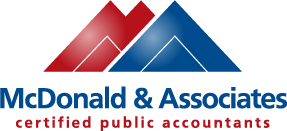Summer Jobs and Taxes
The tax man wants their share!
Now is the time to prepare for the not-so-pleasant part of having a summer job – paying taxes! Here’s what you can expect depending on what type of job you have this summer.
- The employee. A job at a retail store or restaurant generates earned income that is subject to payroll and income taxes. Paying taxes as an employee is super easy, as all necessary taxes will be withheld from your paycheck. You may need to file a tax return if wages and tips are more than $12,950, which is the standard deduction for single taxpayers in 2022.
- The family business. A job at a family business will also generate earned income that is subject to payroll and income taxes. If you are under age 18, receive reasonable compensation for a legitimate job, and the business is either a sole proprietorship or an LLC, you could qualify for an exemption from Social Security, Medicare, and federal unemployment taxes.
- The entrepreneur. A job such as mowing lawns, working on computers or dog walking will generate earned income that is subject to income taxes. You will also have to pay a 15.3% self-employment tax on all profits. Paying taxes as an entrepreneur or business owner also involves making payments to the IRS, either electronically or via check, throughout the year.
- The domestic worker. Performing chores such as babysitting and cleaning for neighbors may trigger the household employee rules, also known as the nanny tax. This can be good news, as these jobs are typically exempt from Social Security and Medicare taxes when paid to workers under age 18 who are considered household employees.
What you need to do
Here are some suggestions for understanding how taxes will affect your summer job:
Explain how taxes are withheld. If you are an employee, take one of your paychecks and review how each dollar amount is calculated. This will also help you understand the different types of taxes, including federal and state income taxes, Social Security taxes and Medicare taxes.
Set up a savings account. If you have your own business, you’ll need to set aside a certain percentage of the money you earn to pay the IRS. An easy way to do this is by transferring a certain portion of the money into a savings account. Pay attention to the quarterly estimated due dates throughout the year – April 15th, June 15th, September 15th and January 15th. These are the deadlines for you to send tax payments to the IRS.
Lower your tax bill. Consider opening an IRA that can help you start saving for the future while potentially lowering your taxes. This helps establish a healthy savings habit while understanding it is possible to pay less in taxes!
Please call if you have questions about taxes and how they apply to your summer job.


